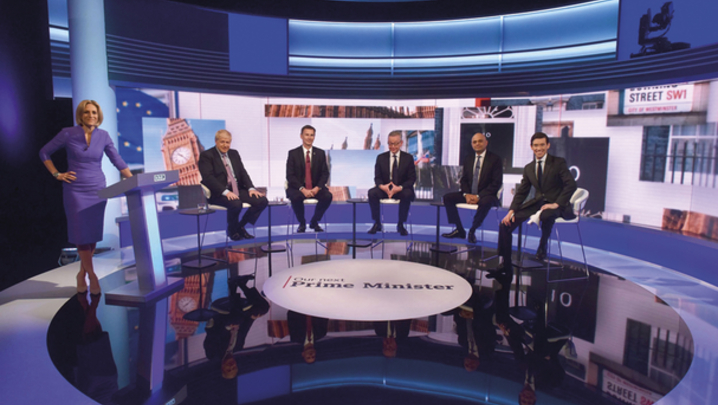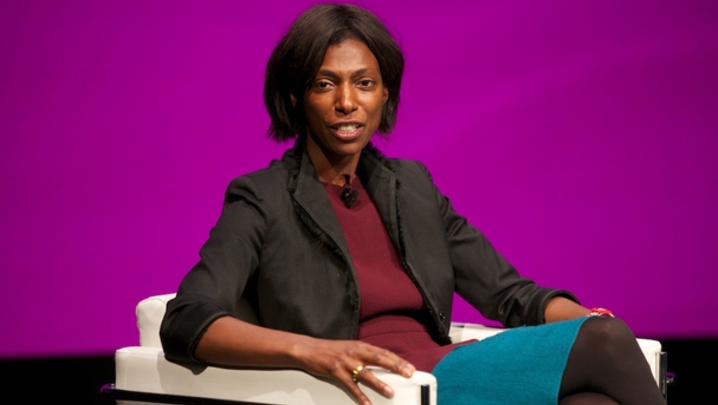Torin Douglas outlines the challenges facing the regulator in the months ahead.
This was always going to be a big year for Ofcom. Its to-do list for 2020 includes: overhauling the telecoms market and upgrading the UK’s broadband network; a major review of public service broadcasting and its future in the face of changing technology and audience habits and huge global competition; tackling both “online harm” and industry diversity issues; updating EU “audio-visual services” rules post Brexit; and, as the BBC’s regulator, trying to sharpen the corporation’s performance and decision-making.
But the stakes have been raised, for a body that cherishes its reputation as an independent regulator, by a newly powerful Government with strong views and ambitions in the media and telecoms sphere. The delay in appointing Ofcom’s new Chief Executive and the recently opened search for the next BBC Director-General have highlighted the sensitive, sometimes fraught, relationship between regulators, broadcasters and government.
Warning signs emerged during the general election, when Prime Minister Boris Johnson questioned the BBC’s licence-fee funding, accused its news programmes of anti-Brexit bias and told his ministers not to appear on Radio 4’s Today programme.
He also crossed swords with Channel 4 after it empty-chaired him (with a melting block of ice) during its climate-change election debate.
The Conservatives complained to Ofcom that the block of ice breached Channel 4’s impartiality obligations. Ofcom’s Election Committee rejected the complaint, but the incident showed that the UK’s communications regulator cannot avoid politics.
And that’s just one of the potential problems for Ofcom. During the election campaign, Johnson made an ambitious pledge to connect all UK homes to “gigabit-speed” broadband by 2025 – a task Ofcom is now striving to fulfil.
On 8 January, it announced a new five-year telecoms plan aimed at encouraging BT and other telcos to invest more heavily in fibre. But the regulator still had no Chief Executive, even though the favoured candidate to succeed Sharon White was named in The Guardian last November.
“Ofcom has chosen Melanie Dawes, one of the UK’s most senior civil servants, to be its new Chief Executive,” it wrote. “The 53-year-old, the most senior woman in the civil service, is currently permanent secretary at the Ministry of Housing, Communities and Local Government....”
The newspaper added that the announcement was not likely to be confirmed until after the election – and that this might have an impact on her appointment, which had to be agreed by the culture secretary.
And so it transpired. When the scale of the election victory became clear, Johnson’s team floated the idea of a radical shake-up of Whitehall, under which the Department of Digital, Culture, Media and Sport (DCMS) might lose oversight of digital and telecommunications policy or be disbanded altogether.
Culture secretary Nicky Morgan, who had stood down as an MP, was given a peerage and stayed on, ahead of a planned February reshuffle. No Ofcom appointment was announced.
On 19 January, an explanation emerged in a Sunday Telegraph headline: “Revolution in Whitehall hits search for Ofcom chief”. The paper reported: “In the latest sign of the determination in No 10 to shake up officialdom and the BBC, the Government has refused to approve the regulator’s preferred candidate and launched a search for leaders beyond Whitehall. Culture secretary Baroness Morgan has been making personal approaches to industry executives to encourage them to apply for the role.”
The Sunday Telegraph explained the significance of the change: “The regulator is at the centre of attempts to overhaul the telecoms market to deliver a nationwide broadband upgrade within five years. Meeting the ambitious goal was one of the Prime Minister’s main campaign pledges.
“Ofcom is also responsible for regulation of the BBC and due to conduct a review of the public service broadcasting system, which some in government view as a vehicle to force change on the national broadcaster.”
The following morning, the BBC announced that Tony Hall would step down as Director-General in the summer.
Colin Browne, Chair of Voice of the Listener and Viewer, which works to promote high-quality broadcasting, says: “Reports that the Government has turned down Ofcom’s candidate for CEO don’t augur well for its relationship with the Government.
“It’s just another piece in what looks like an uncertain and potentially hazardous period for PSB, which has been further complicated by the upcoming retirement of Tony Hall.”
He adds: “We know the Government has made unfriendly comments about the BBC and Channel 4 and it remains to be seen how far Ofcom is affected by that. Ofcom has always tried to avoid the politics but you can’t protect PSB by regulation alone, you need government legislation.”
"Increasingly, our major competitors are well funded, international giants – Netflix, Spotify, Facebook, YouTube – whose financial resources dwarf our own"
But let’s put aside the politics. What are Ofcom’s key tasks for 2020, under its acting Chief Executive, Jonathan Oxley?
The race to meet the 2025 target for faster and more reliable broadband is of crucial importance, to broadcasters, as much as anyone, as their audiences move online.
But a bigger priority for the television world – particularly the BBC, Channel 4 and ITV – is Ofcom’s PSB review, aimed at preserving the benefits of public service broadcasting in the face of changing technology, viewing behaviour and unprecedented global competition. The first stage is about to be published: its assessment of the current state of PSB, and how it performed from 2014 to 2018. Now, Ofcom is looking to the future and what it calls the fundamental question: how to ensure a mix of high-quality, original UK content in an on-demand and increasingly personalised environment.
Under the title Small Screen: Big Debate, it has launched a nationwide series of discussions with broadcasters, producers and representative groups, as well as examining the views of audiences via focus groups.
Sir Peter Bazalgette, Chair of ITV and former Chair of the Arts Council, led an independent review of the UK’s creative industries. He says the future of the UK’s PSB is crucial to its democracy, culture and economy: “Are we going to have trustworthy news? Are we going to have British-made programmes for Brits about Brits? The regulator needs to ensure there is protection for the content and distribution that underpins our democracy.”
The crucial issue here, say ITV and the BBC, is “prominence” – making sure that audiences can easily find public service content in a world of smart TVs, tablets and online streaming, where programmes are discovered via apps, rather than EPGs that prioritise the public service channels.
Clare Sumner, the BBC’s policy director, recently told the Westminster Media Forum: “We need a flexible framework of regulation that enables PSBs to thrive in the face of unprecedented global competition, where UK content and trusted news are not the priority for many others. This means future-proof legislation that gives Ofcom the flexibility to update its rules in real time, because the pace of change is incredible and it’s only going to get quicker.”
"We have serious concerns around the transparency of the BBC’s complaints process"
Magnus Brooke, ITV’s director of policy and regulatory affairs, says that, unless the regulator and the Government take a tough line on the prominence rules, global companies may simply decide to do without the UK’s PSB content. “We need a fair balance between the PSBs and the platforms, to ensure what we might call ‘inclusion’ – that national content is protected.”
Sky has a different view. It sees the PSB review as a chance to challenge the orthodoxy espoused by ITV and the BBC, by opening up local news to new competition.
At the Westminster forum, Sky’s policy director, David Wheeldon, said the PSB landscape should shift, to better reflect today’s media landscape: “I urge Ofcom to be bold in its thinking and not be afraid to challenge the long-held assumptions about ‘how things are done’.”
Sky has also intervened on the issue of “online harm”, with an article last month in The Times by its group CEO, Jeremy Darroch, with a headline online of “What Prohibition teaches us about regulating the internet”.
Sky is backing a bill by Lord McNally, which, Darroch wrote, would “kick off the long-overdue process by empowering Ofcom to prepare a duty-of-care obligation for online platforms, overseen by an independent and evidenced-based regulator”.
And then there’s Ofcom’s relatively new role as regulator of the BBC, where both sides have been flexing their muscles. A year ago, BBC Chair Sir David Clementi told the Oxford Media Convention that the need to seek Ofcom approval for iPlayer updates was holding the corporation back.
“Every month is precious,” he said. “Netflix, for example, currently updates its app more than 50 times a year – around once a week – with no hold-up, and no need for regulatory approval.
“[Our] regulatory system has its origins in an era when the BBC was seen as the big beast in the jungle, against whom all others needed protection. That view of the world has now passed. Increasingly, our major competitors are well funded, international giants – Netflix, Spotify, Facebook, YouTube – whose financial resources dwarf our own.”
Last autumn, Ofcom accused the BBC of a lack of transparency, after the Director-General overturned a ruling by its Executive Complaints Unit over remarks about Donald Trump made by BBC Breakfast presenter Naga Munchetty.
Kevin Bakhurst, Ofcom’s director for content and media policy, said: “We have serious concerns around the transparency of the BBC’s complaints process, which must command the confidence of the public. We’ll be requiring the BBC to be more transparent about its processes and compliance findings as a matter of urgency.”
The Guardian reported that the BBC had tried to stop Ofcom’s inquiry. It alleged that David Jordan, the corporation’s director of editorial policy and standards, had argued strongly that Ofcom lacked the authority to examine the case. A BBC spokesperson said: “We note Ofcom’s finding and the fact that it agrees with the Director-General’s decision.”
Ofcom’s next Chief Executive will not have a quiet life, whoever eventually gets the job.




